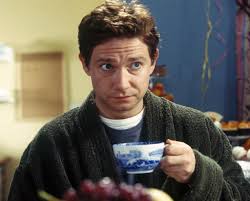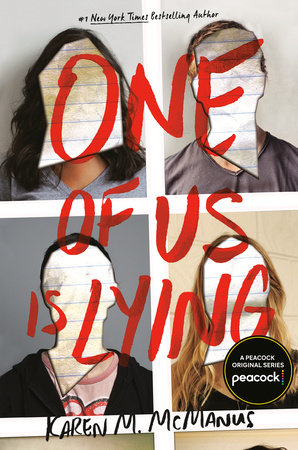
Feathers and Fae is a
young adult fantasy novel by Crystal L. Kirkham. It was published in October of
2019 by Kyanite Publishing LLC. I was provided with an advanced copy of the
book in exchange for an honest review.
The story follows two teens, Kami and Emmett, who have been
best friends for as long as either could remember. Emmett, however, has a
secret and his past catches up with him when a dark fae known as the Erlkrönig chases them into another
realm, Mythos. When Kami awakes, she can detect when people are lying and that
means she knows everything Emmett has ever told her is a lie. Emmett wants to
get Kami home, to safety, as quickly as possible while avoiding the Erlkrönig,
who is hunting them. On the journey, Emmett’s web of lies starts to unravel and
Kami learns the truth, which shakes the foundations of everything she knows to
be true.
Feathers and Fae
is a book that doesn’t hold many surprises. At
the beginning of the story, Emmett is somewhat of an enigma. He clearly has
this innate need to protect Kami, although the reason isn’t initially clear.
After the pair wind up in Mythos, as a result of Emmett using a previously
unknown, to the reader, power, there’s a mystery surrounding what exactly he
is. It becomes clear that he also has some sort of connect to the Erlkrönig,
which adds some intrigue. All of that intrigue goes out of the window the
second time Emmett uses his powers. It becomes very clear exactly what species
he is, yet the book continues to try and make it seem like a mystery. Some
might say that the title somewhat spoils that particular plot twist, but the
title is vague enough to prevent me from saying its entirely predictable in
that sense. My biggest complaint centers around the narrative acting like
Emmett’s secret is harder to guess than it actually is. Rather than being
foreshadowed, it’s pretty much spelled out a hundred pages before someone in
the story actually says what he is.
I may be getting ahead of
myself. Let’s discuss the characters for a moment. There are about five
characters we care about: Emmett, Kami, the seer Jewel, a yeti named Bob and,
of course, the bad guy the Erlkrönig. There’s not a lot I can really say about
Emmett or Kami. I found them both to be rather bland and one-dimensional.
Emmett wants to keep is secrets and get Kami to safety. Kami wants real answers
about what the hell is happening and flip-flops between being angry or not
angry, at Emmett for being reluctant to give those answers. It felt like a few
scenes were repetitive with Kami asking for answers, not getting them and then
being grumpy about it, and those scenes started to annoy me after a while.
Jewel is a seer they meet to ask how to get home, and she invites herself along
on their journey. I liked Jewel for the most part. She was the person who
prevented Kami from being completely in the dark, because, as a seer, she knew
what information she needed to know at each stage of the adventure. Something
that I didn’t like was the fact that Jewel, who’s a seer, keeps ending up in
situations where she can’t use her abilities. Her powers aren’t written
consistently, and she ends up saying “sorry I didn’t see this” too many times.
Bob is a yeti. He’s my favorite character because there isn’t a convoluted
backstory or explanation to explain why he’s there. They need a guide through
some mountains and he offers to be theirs. Lastly, we have our villain, the Erlkrönig,
who’s what most would recognize as a pure evil villain. He wants power. He
already has power, but he wants more. He won’t stop until he has all of the
power. Emmett beat him once, but didn’t vanquish him, and he’s come back to
finish what he started. Fantasy novels are where I see pure evil villains and
that’s where they kind of fit the best. They don’t have nuance because they
don’t need nuance, they just want to take over the world or whatever. He’s evil
and that’s all there is to him.
The plot of Feathers and
Fae is a little all over the place. Emmett and Kami wind up in Mythos and
they need to get home, to their own realm, before the Erlkrönig finds them and
exacts his revenge. The premise is simple, but in a story that’s ultimately
about defeating the Erlkrönig, a lot of the story is padded with showing the
journey they need to take to get to a portal that’s supposed to take them home.
Reaching the portal ends up mattering only in a “if they don’t do x, y can’t
happen and thus z is harder to explain” sense. I feel like some of this was
done as a way of world-building, but it didn’t feel organic here. If a story is
chronicling a journey, then the stops made during that journey need to have an
impact on the story as a whole. That doesn’t happen here. The pair, and Jewel,
go to the elves territory to use a portal there, only to be turned away. The
group then needs to head to the dwarves’ land to use a portal deep in the
mountains. The run-in with the elves has no impact later, so the story could’ve
worked with the original destination being the dwarves’ land. Once they reach
the portal, the story shifts again from being about Emmett and Kami getting
home to needing to defeat the Erlkrönig, with very few sightings or threats by
him between them coming to Mythos and needing to stop him. If there’d been
either less focus on the journey, or if the Erlkrönig was written as a more
dire threat during the group’s travels, the flow would’ve worked a little
better. There’s a clear reason why the pacing is the way that it is. The long
journey gives time for more information about Emmett, and his connection to
Kami, to come to light without doing an info dump. The problem is that the most
important information is still delivered by Emmett, as a clear info dump, right
before the climax. If the same information had been revealed slowly, on the
journey, I would’ve liked it better.
Now, let’s discuss the
conclusion of the story. Emmett, Kami, Bob and Jewel need to defeat the Erlkrönig
to avoid him taking over Mythos, and then the other realms. The book is roughly
380 pages. The final battle, the climax of the story, is 17 pages long. It’s
not even 5% of the book. Now, there had been tension building for a while,
especially after Emmett encounters the Erlkrönig face-to-face and is captured
by him, but that’s an incredibly rushed final confrontation. It’s not like
prior to this fight, the characters kept having run-ins with the villain
either. For most of the story, they’re traveling, with the vague threat of the
bad guy chasing after them. The final confrontation is very rushed. It reads as
very rushed. The good guys start losing, Emmett as one last idea to try, and
then they win. It’s not dramatic, or drawn out and the way that the heroes win
falls just shy of a deus ex machina moment.
Thus far, this review has
been very negative. I’m aware of that, but there were some things I enjoyed. I
liked the actual realm that the story took place in. it had a rich plethora of
creatures, species and locations. As part of the journey, the reader didn’t
just get to see one section of the map, but several. Through Emmett and Kami, I
learned about the different cultures with this world. The magic system wasn’t
completely explained, but the parts that were explored, aside from Jewel’s
foresight, were easily demonstrated and well-explained. The best way I can
really explain it is that I liked the world, but I wasn’t a big fan of the
story that was being told in it.
Feathers and Fae
isn’t a bad book, just one that I found
disappointing. It could be the first book in a series, but it could also be a
stand-alone. If it is the first in a series, that would explain why the plot
seems to revolve around building the world rather than the main conflict. I
feel like the story is actually two stories that are weakly linked together.
There’s the story of Emmett and Kami trying to get back to their own realm. And
there’s the story of Kami, Emmett and their companions trying to defeat the Erlkrönig.
If the author had chosen the first, it could’ve been good. If she’s chosen the
second, it would’ve had potential. Instead, she chose both and I can’t say that I understand why. The story had potential, but that potential wasn't fully realized.
Rating: 2.1 stars



![Anomaly by [Gilliland, Jessica]](https://images-na.ssl-images-amazon.com/images/I/312qUy26chL.jpg)















